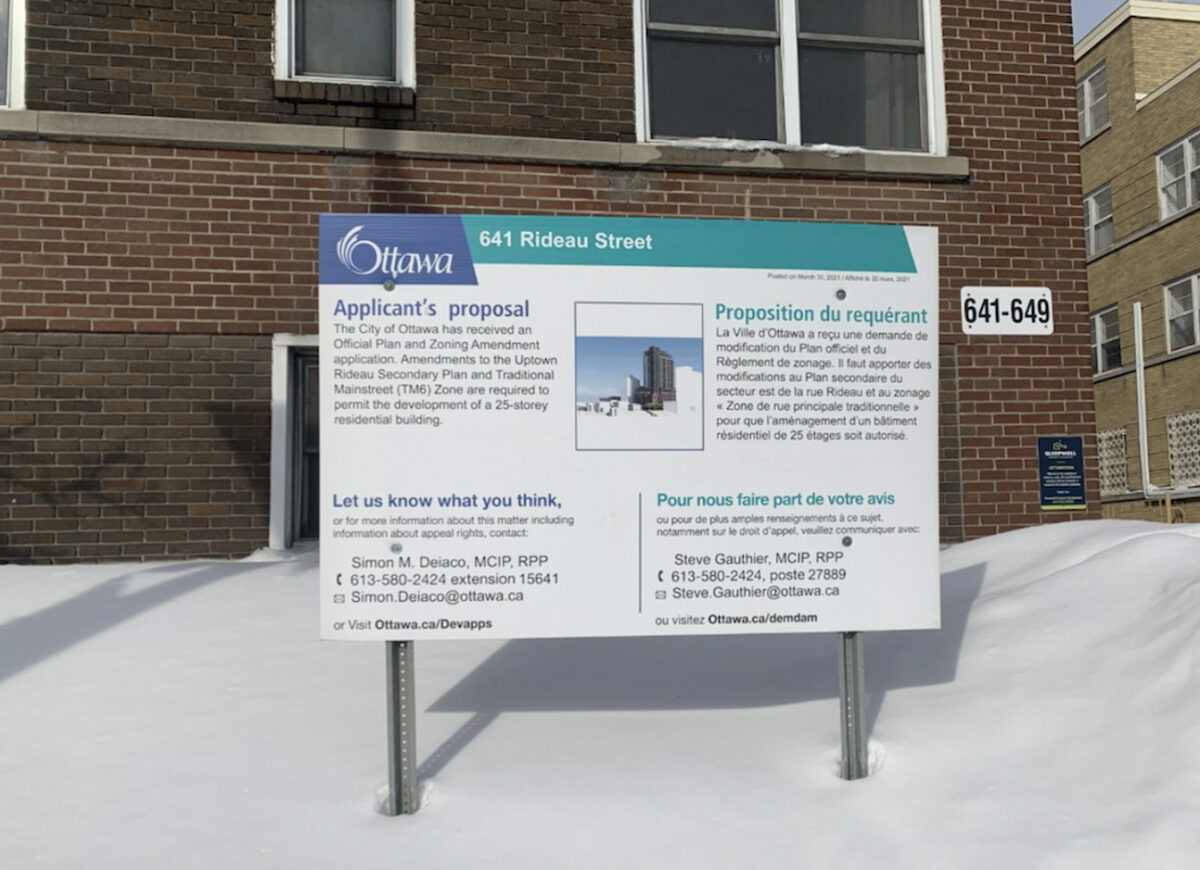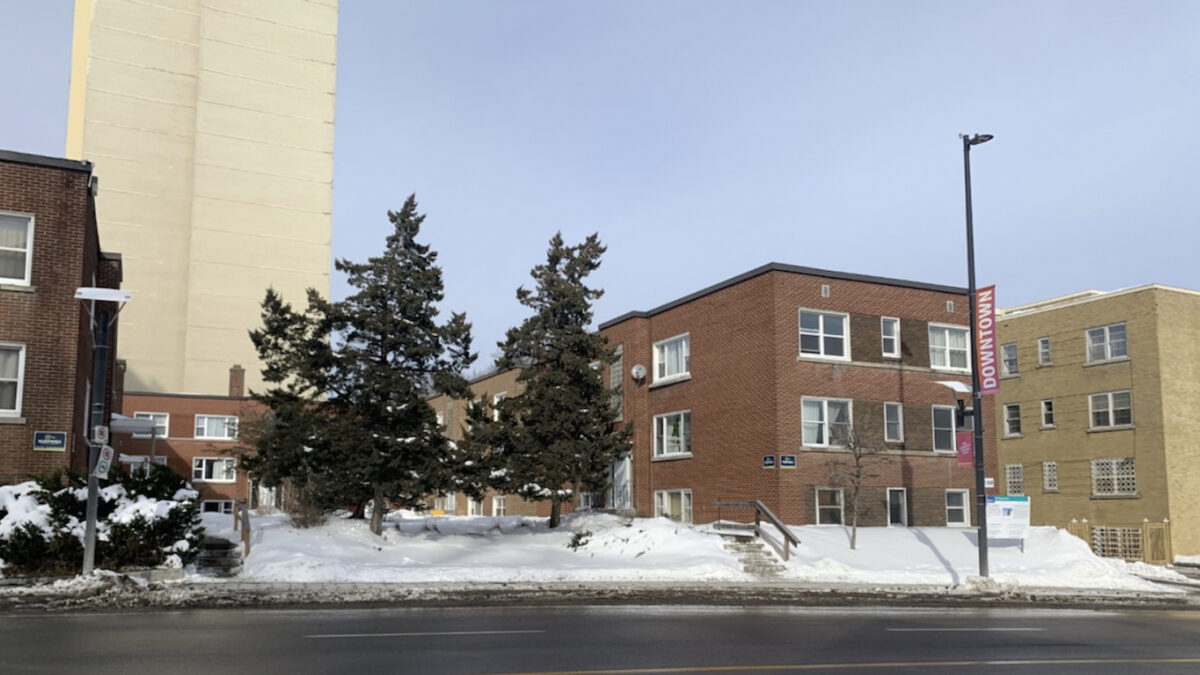A potential compromise has emerged at a Rideau Street redevelopment site where tenants living in 30 affordable housing units face “demoviction” as part of the property owner’s plan to build a 25-storey luxury highrise.
Buses and cars speeding westward over the Rideau River bridge into the heart of Ottawa, pass low-rise buildings, shops and streetlight banners that declare “DOWNTOWN” along Rideau Street. All over the area, construction cranes and development-proposal placards are tell-tale signs of continued residential and commercial construction in the core.
But there’s been controversy over tenants’ rights at one redevelopment site on Rideau Street near the river and Besserer Park. The affordable housing complex at 641-649 Rideau St. includes 30 moderate- to low-income units in five low-rise brick apartment buildings in a busy redevelopment hub in the southeast corner of Lowertown.
Tenants are facing eviction as part of a plan by Théberge Homes to redevelop the site and replace the existing buildings with a high-rise.
The new luxury building would have views across downtown, as well as over the nearby Rideau River. In an area surrounded by embassies, 641-649 Rideau St. is a short distance from the Rideau Centre.

The City of Ottawa’s planning committee voted on Jan. 27 to approve demolition, despite protests from current and former residents.
The approval was slammed by critics as a loss for affordable housing and a contradiction of the city’s declaration of a housing and homelessness emergency in 2020.
Ottawa was the first city in Canada to declare such an emergency.
But during committee deliberations, Rideau-Vanier Coun. Mathieu Fleury put forth a motion to have Théberge Homes owner, Joey Théberge, sign an agreement stating that his company would cover the cost of existing tenants’ moving expenses, as well as any increase in rent incurred during the first year after relocation. This motion was approved alongside the redevelopment proposal.
Despite the proposed subsidy, renters were not happy.
“They talk about well, we could give them a year’s subsidy — well that just defers the inevitable,” said Darin Loewy, a former resident of 641-649 Rideau St.
Loewy has been active in protesting the redevelopment. “This really is a terrible situation for working class people,” he said.
Loewy detailed his own struggles finding a place to live after leaving 641-649. He lamented the continued loss of low-income housing across the city, pointing to this as one of the main reasons behind the continued struggles of low- to moderate-income residents of Ottawa.
The local chapter of ACORN, an independent national organization that advocates for low- and moderate-income tenants, has loudly opposed the Théberge Homes proposal. ACORN representatives organized a protest outside the units on Jan. 20 and attended the Jan. 27 planning committee meeting.
According to an ACORN report on the demoviction phenomenon, more than 5,500 tenants face eviction as a result of more than 25 redevelopment proposals across Ottawa.
Ahead of the Jan. 27 meeting, ACORN released a statement that, “with tenants’ homes at risk and rents rising faster every year, bold action is needed” to halt demovictions and specifically reject the redevelopment proposal for 641-649 Rideau St.
“With tenants’ homes at risk and rents rising faster every year, bold action is needed.”
— Statement from tenants’ advocacy group ACORN
ACORN pointed to rules in Burnaby, B.C., that “protect all tenants at risk of demoviction” with provisions that include: a rental replacement bylaw that ensures affordable units lost to redevelopment must be replaced at a ratio of at least 1:1; a guarantee that tenants who are evicted have the first right of refusal to move back into the units created in the new development, with the same rent and number of bedrooms; rules to ensure “rent stabilization” by providing temporary accommodations or a rental top-up for tenants during construction; four months’ notice for existing tenants; assistance for moving costs incurred by tenants.
According to the city’s new plan to tackle homelessness and affordable housing issues, Ottawa intends to make the capital the most livable mid-sized city in North American in the next 25 years. This includes expanding affordable housing options alongside redevelopments.
By expanding the mid-sized housing range and increasing the density of units, the city says it hopes to ease affordable housing and homelessness issues.
For those currently living in 641-649 Rideau, Loewy said tenants are hoping for further rent-increase compensation, depending on how long the individual has resided in the existing low-rise buildings.




